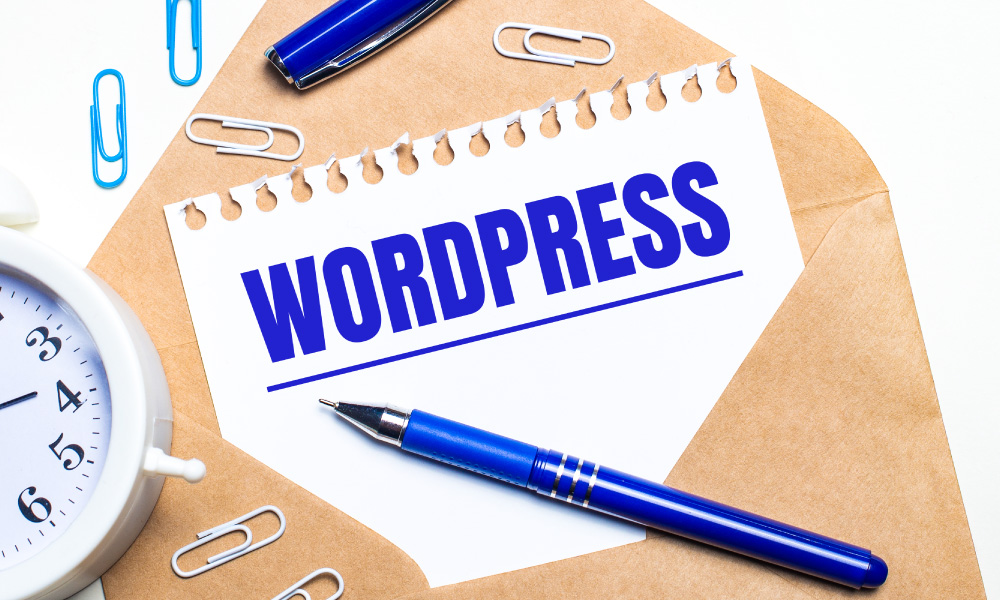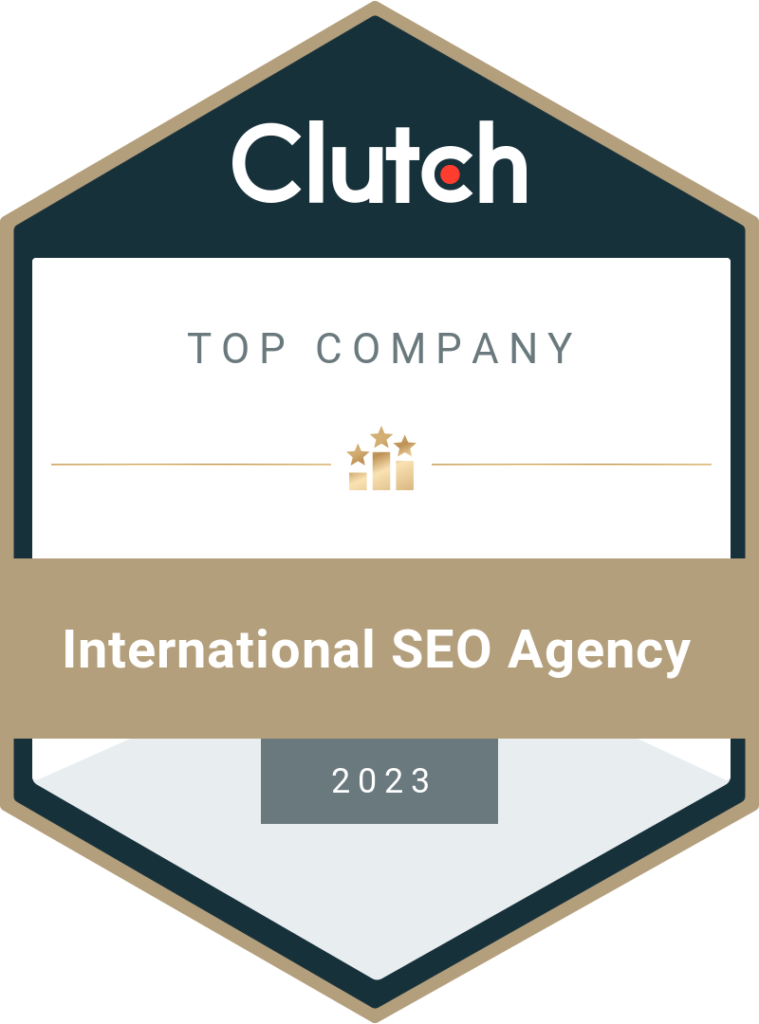In the dynamic world of web development, selecting the perfect website platform can be a pivotal decision. With an array of options available, it’s crucial to understand the strengths, weaknesses, and suitability of each platform to ensure that your website meets your goals and requirements. In this article, we will delve into the comparison of four popular website platforms: WordPress, Wix, Squarespace, and Joomla.
Table of Contents
WordPress: Unleash Your Creativity

WordPress, the juggernaut of content management systems, powers approximately 40% of all websites on the internet. Renowned for its remarkable flexibility and customization capabilities, it caters to a diverse range of users – from bloggers and small business owners to large enterprises.
Pros:
- Versatility: WordPress boasts unparalleled versatility, making it suitable for a variety of website types, from personal blogs to e-commerce platforms.
- Plugins and Themes: Its extensive repository of plugins and themes allows you to amplify functionality and design.
- SEO Advantages: With numerous SEO plugins available, WordPress facilitates optimizing your website for search engines.
- Community and Support: A vast user community means you’re never far from solutions to your queries.
Cons:
- Learning Curve: Despite its user-friendly interface, mastering advanced features might require a learning curve.
- Maintenance: Regular updates and security measures are necessary to safeguard your site.
Wix: Simplicity Meets Elegance

For those seeking a seamless and visually appealing website-building experience, Wix shines with its drag-and-drop interface. It’s particularly suitable for beginners and creative individuals who prioritize aesthetics.
Pros:
- User-Friendly: Wix’s intuitive drag-and-drop editor makes website creation accessible to everyone, regardless of technical expertise.
- Design Variety: A vast collection of pre-designed templates allows you to achieve a professional look effortlessly.
- App Market: Wix’s app market provides an opportunity to enhance your website’s functionality.
Cons:
- Scalability: While excellent for small to medium-sized websites, scaling up might pose challenges.
- Customization Limits: Advanced users seeking extensive customization might find certain limitations.
Squarespace: Artistry and Simplicity

Squarespace positions itself as an elegant platform, catering primarily to creative professionals who value design aesthetics. It’s a strong contender for portfolios, small businesses, and artists.
Pros:
- Visual Appeal: Squarespace’s stylish templates excel in showcasing visual content, making it ideal for photographers, artists, and designers.
- Mobile-Responsive: All templates are inherently mobile-responsive, ensuring a consistent experience across devices.
- All-in-One Package: Squarespace includes hosting, domain registration, and security features in its packages.
Cons:
- Customization Constraints: While templates are stunning, customization options might be limited for those seeking more intricate designs.
- E-commerce Limitations: While Squarespace offers e-commerce functionality, it might not be as robust as specialized e-commerce platforms.
Joomla: Advanced Customization

Joomla sits between WordPress’s power and Wix’s simplicity, catering to users who require more complexity and advanced customization options.
Pros:
- Advanced Features: Joomla excels in providing advanced features, making it suitable for complex websites.
- Scalability: It can handle larger websites and can be extended with various extensions and plugins.
Cons:
- Learning Curve: Joomla’s richer feature set demands a steeper learning curve.
- Maintenance: Active management of updates and security is essential.
Choosing Wisely: Making an Informed Decision
Selecting the right website platform hinges on your specific needs and goals. If you’re a beginner or a creative individual aiming for simplicity and visual appeal, Wix or Squarespace could be your allies. For those desiring unparalleled customization and scalability, WordPress and Joomla offer advanced options. Your technical know-how, design preferences, scalability requirements, and long-term vision should guide your choice.
In a nutshell, each of these website platforms caters to distinct needs and aspirations. Armed with a clear understanding of WordPress, Wix, Squarespace, and Joomla, you’re better equipped to navigate the terrain of website development, ensuring your online presence aligns seamlessly with your objectives.
Key Considerations When Choosing a Website Building Platform

Selecting the right website building platform is a pivotal decision that can significantly impact your online presence. With a plethora of options available, each with its own set of features and capabilities, it’s crucial to carefully evaluate your needs, goals, and technical expertise. Here are some key considerations to keep in mind when choosing a website building platform:
- Purpose and Goals: Define the purpose of your website. Are you creating a blog, portfolio, e-commerce store, or a business website? Different platforms cater to different types of websites, so understanding your goals will help you narrow down your choices.
- Ease of Use: Consider your level of technical expertise. If you’re a beginner with limited coding skills, opt for platforms with intuitive interfaces and drag-and-drop builders. If you’re more technically inclined, platforms with advanced customization options might be preferable.
- Customization Options: Assess the level of customization you need. Some platforms offer extensive design flexibility, allowing you to create a unique look and feel. Others might have limitations on design and layout customization.
- Scalability: Consider the potential for growth. Will your website need to handle more traffic, products, or content in the future? Choose a platform that can accommodate your scaling needs without major overhauls.
- Templates and Design: Look at the variety and quality of templates offered by the platform. These templates form the foundation of your website’s design. Choose a platform that offers templates aligned with your branding and aesthetics.
- Mobile Responsiveness: In today’s mobile-centric world, a mobile-responsive website is essential. Ensure that the platform you choose automatically adapts your site’s layout to various screen sizes.
- E-Commerce Capabilities: If you plan to sell products or services online, evaluate the platform’s e-commerce features. Check for payment gateway integrations, inventory management, and product display options.
- SEO-Friendliness: A good website should be easily discoverable by search engines. Look for platforms that offer built-in SEO tools or compatibility with popular SEO plugins.
- Extensions and Plugins: Extensions and plugins enhance the functionality of your website. Check if the platform has a robust marketplace of plugins or extensions that can add features such as contact forms, social media integration, and more.
- Cost and Budget: Consider your budget for website development and maintenance. Some platforms offer free plans with limited features, while others require a subscription or one-time payment for access to premium features.
- Technical Support: Evaluate the level of customer support provided by the platform. Check if they offer documentation, tutorials, forums, or direct customer support channels.
- Data Portability: Ensure that you can easily move your website and its content to another platform if needed. Some platforms might make it difficult to migrate, leading to data lock-in.
- Security and Updates: Website security is paramount. Opt for platforms that provide regular updates, security patches, and strong security features to protect your site and user data.
- Community and Resources: A vibrant user community can be immensely helpful when troubleshooting issues or seeking advice. Check if the platform has an active community and a wealth of online resources.
- Long-Term Viability: Consider the platform’s reputation, longevity, and user base. Choosing a platform with a strong track record can provide more stability and support in the long run.
By carefully evaluating these considerations, you can make an informed decision about which website building platform aligns best with your goals, technical abilities, and the unique needs of your project. Remember that there is no one-size-fits-all solution; the platform you choose should empower you to create a website that reflects your vision and achieves your objectives.
The cost of each website building platforms
The cost of website building platforms can vary widely based on factors such as the features offered, customization options, hosting, domain registration, e-commerce capabilities, and more. Here’s a breakdown of the typical cost structures for the four popular platforms we discussed earlier: WordPress, Wix, Squarespace, and Joomla.
Shopify
Shopify is a popular e-commerce platform that offers a user-friendly and comprehensive solution for creating and managing online stores. It’s designed to simplify the process of setting up an e-commerce website, making it accessible to entrepreneurs and businesses of all sizes.
Key Features:
- User-Friendly Interface: Shopify’s intuitive interface allows users to set up their online stores without extensive technical knowledge.
- E-commerce Features: It provides a range of built-in features such as product management, inventory tracking, order processing, and payment gateways.
- Themes and Templates: Shopify offers a variety of customizable themes that allow businesses to create visually appealing and responsive online stores.
- App Store: The Shopify App Store provides a wide range of apps and plugins that can enhance store functionality, including marketing, analytics, and customer support.
- Security and Hosting: Shopify takes care of hosting and security, ensuring that your store is protected and runs smoothly.
- Scalability: Shopify can accommodate businesses of all sizes, from small startups to enterprise-level companies.
Cost:
Shopify offers various pricing plans starting from Basic Shopify at $29 per month, Shopify at $79 per month, and Advanced Shopify at $299 per month. The enterprise-level plan, Shopify Plus, is available at a custom price for larger businesses.
Magento
Magento is a powerful open-source e-commerce platform that provides extensive customization and scalability options, making it suitable for businesses with complex needs and larger budgets.
Key Features:
- Customization: Magento is highly customizable, allowing businesses to create unique online stores tailored to their specific requirements.
- Scalability: It’s built to handle high traffic and large product catalogs, making it suitable for enterprise-level e-commerce.
- Extensions and Plugins: Magento has a vast marketplace of extensions and plugins to add functionalities like payment gateways, shipping options, and more.
- Multi-Store Capability: Magento allows you to manage multiple online stores from a single admin panel.
- Advanced Reporting: The platform offers robust reporting and analytics tools to help you make data-driven decisions.
Cost:
Magento has two main versions: Magento Open Source (formerly Community Edition) is free to use but requires hosting and development resources. Magento Commerce (formerly Enterprise Edition) is a paid version with features tailored for larger businesses, and pricing is available upon request.
Custom-Built Website
A custom-built website is developed from scratch based on the specific requirements of the business. It offers complete flexibility in terms of design, features, and functionality.
Key Features:
- Unique Design: Custom websites allow businesses to create a unique and tailor-made design that aligns with their brand identity.
- Scalability: Since the website is built from scratch, it can be designed to handle specific scalability requirements.
- Advanced Functionality: Custom websites can incorporate complex features and functionalities that are not available in off-the-shelf platforms.
- Full Control: Businesses have complete control over every aspect of the website, allowing them to implement specific features and optimize performance.
Cost:
The cost of a custom-built website varies widely based on factors such as design complexity, features, development time, and ongoing maintenance. Small business websites might start from a few thousand dollars, while more complex websites can range from tens of thousands to hundreds of thousands of dollars.
WordPress
- Platform Cost: WordPress itself is open-source and free to use. However, you’ll need to purchase a domain name and web hosting, which can cost around $10 to $50 per year for a domain and $3 to $25 per month for hosting.
- Themes and Plugins: There are both free and premium themes and plugins available. Premium themes and plugins can range from $30 to $100 or more each, depending on their complexity and functionality.
- E-commerce: If you’re setting up an online store, you might need to invest in an e-commerce plugin like WooCommerce, which is free to use but might require additional paid extensions for advanced features.
Wix
- Platform Cost: Wix offers a range of pricing plans, starting from around $14 to $35 per month for basic website plans. E-commerce plans start at around $23 to $49 per month.
- Domain: Wix often provides a free domain for the first year with their premium plans. Renewal costs for the domain typically range from $14 to $25 per year.
- Apps: While Wix has a marketplace for free and paid apps, some apps may require additional costs, ranging from a few dollars to a monthly subscription fee.
Squarespace
- Platform Cost: Squarespace offers pricing plans starting from around $12 to $40 per month for standard websites. E-commerce plans start at around $18 to $46 per month.
- Domain: Similar to Wix, Squarespace usually provides a free domain for the first year with premium plans. Renewal costs for the domain are in the range of $20 to $70 per year.
Joomla
- Platform Cost: Joomla itself is free to use, but you’ll need to factor in costs for web hosting and a domain name, similar to WordPress. Hosting costs can range from $3 to $25 per month, and domain costs are typically $10 to $50 per year.
- Extensions: Joomla has a variety of extensions and templates, some of which are free, while others can range from $20 to $100 or more.
Keep in mind that these cost estimates are rough averages and can vary based on factors such as the level of customization, the number of premium features you need, and any additional services or add-ons you choose to include. Additionally, remember to factor in costs like SSL certificates for security and potential costs for hiring a developer or designer to assist with customization and setup.
When choosing a platform, carefully evaluate the costs associated with your specific needs and budget constraints. It’s essential to understand both the initial costs and any ongoing expenses to make an informed decision that aligns with your financial resources and project goals.
Shopify
- Platform Cost: Shopify offers a range of pricing plans, starting from around $29 to $299 per month for different tiers. Advanced plans and custom enterprise solutions are available as well.
- Transaction Fees: On lower-tier plans, there’s a transaction fee ranging from 0.5% to 2% for each sale, unless you use Shopify Payments.
- Add-ons and Apps: While Shopify provides various free and paid apps to enhance your store’s functionality, some apps may have additional costs ranging from a few dollars to monthly subscription fees.
- Domain: You can purchase a domain through Shopify, with costs around $14 to $20 per year.
Magento
- Platform Cost: Magento offers both a free open-source version (Magento Open Source) and a paid enterprise version (Magento Commerce). The enterprise version’s cost is usually higher and can range from $20,000 to $125,000 per year.
- Hosting and Infrastructure: With Magento, you’ll need to arrange for your own hosting, which can cost anywhere from $10 to $300 per month or more, depending on your site’s size and complexity.
- Development and Customization: Magento often requires skilled developers for customization, which can add to your expenses.
Custom-Built Website
- Development Costs: Custom websites vary significantly in cost based on complexity, features, design, and functionality. Small business websites might cost a few thousand dollars, while complex e-commerce or enterprise websites can range from tens of thousands to hundreds of thousands of dollars.
- Domain and Hosting: These costs are similar to other platforms and depend on your chosen domain and hosting provider.
- Ongoing Maintenance: Custom websites require ongoing maintenance, which can include security updates, bug fixes, and adding new features. Maintenance costs can range from a few hundred to a few thousand dollars annually.
Comparative Considerations
When comparing these platforms, it’s crucial to consider not only upfront costs but also ongoing expenses, scalability, customization potential, and the specific needs of your project:
- Shopify and Magento: These are robust e-commerce platforms suitable for online stores. While Shopify is more user-friendly with a monthly subscription, Magento offers higher customization potential and might be more cost-effective for larger businesses with in-house technical teams.
- Custom-Built Website: A custom-built website offers the highest degree of flexibility and uniqueness but requires a higher initial investment and ongoing maintenance costs. It’s best suited for businesses with specific needs that can’t be met by off-the-shelf platforms.
Final Thoughts
Ultimately, the choice of platform should align with your project goals, budget, technical capabilities, and long-term vision. Understanding the cost structures of these platforms will help you make an informed decision that ensures the success and sustainability of your online presence.
Need help with Website Development or Maintenance?
RankON Technologies is a leading website development company in India that offers top-quality web design services and website maintenance services for small to large size businesses at very affordable prices. Please check our website development packages and website maintenance packages now!
Get in Touch!Website Maintenance Packages











